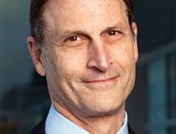Latest KFF Health News Stories
Health On The Hill: May 25, 2010
The House of Representatives may vote on legislation this week that would stop a scheduled June 1 payment cut for doctors who accept Medicare physicians.
In Sickness and In Health: Elderly Caregivers
Caring for a sick or disabled elderly relative exacts a toll — physical, emotional, financial — on any family member, but being a spousal caregiver brings particular challenges.
College Student Health Plans Often Get Low Marks
College health plans – used by students who aren’t covered by family insurance plans or whose parents are uninsured – can offer only limited protection. The new health law may help.
Kansas Mental Hospitals Beyond Capacity
The Kansas Department of Social and Rehabilitation Services has suspended voluntary admissions to the state’s three hospitals for the mentally ill because they are full.
Spouses Face Hurdles When Caring For Themselves, Ill Loved Ones
Family caregivers now administer arsenals of medications and undertake procedures, from wound care to dialysis, that were once the province of medical professionals.
London Fog: Berwick and Britain’s NHS
Senate Minority Leader Mitch McConnell, of Kentucky, said he was “alarmed” by Berwick’s admiration of the NHS. Senators Jon Kyl of Arizona and Pat Roberts of Kansas say Berwick advocates the “rationing” of care. Of course, as Berwick pointed out, our system already rations care by income and medical status. Apparently this is not so alarming to McConnell and the rest of the GOP.
Obama’s Health IT Leader Says Doctors Will Embrace Change
David Blumenthal is guiding the deployment of up to $27 billion in federal stimulus money to help doctors and hospitals implement health information technology. Proponents say the shift is critical to achieving goals of medical care quality and cost control.
Week In Review: Honing Political Strategy On Health Reform; Facing Down A Medicare Deadline
Confusion from the primary elections this week punctuated the Obama administration’s progress on implementing the new health law.
Many Young Adults Will Wait For Health Coverage After All
Some parents, hoping that their young adult children could get insurance soon, are finding that many large employers aren’t planning to offer the new benefit early.
Secretary of Health and Human Services Kathleen Sebelius must soon decide how to spend millions of dollars on a potentially endless array of worthy prevention projects, ranging from bike trails and community gardens to local public health departments and obesity prevention.
For-Profit Cash Infusion May Help Detroit Medical Center Rebound
A deal to buy the beleaguered city’s largest health system would mean $850 million in improvements.
Two Tiered Medical Care for Haves and Have Nots
A growing number of physicians are leaving traditional insurance-based practices to offer VIP treatment.
Medical Spending Spiking In Once Thrifty Areas
Areas like Provo, Utah, that were once models of cost-efficient care are becoming more expensive
Hospital Tries ‘Speed Dating’ To Attract Doctors, Patients
Although some critics say marketing drives up costs, many in the hospital industry say it’s crucial in the face of increasing competition. One Dallas area hospital is trying a version of “speed dating” to bring in patients and doctors.
New Health Law Throws Lifeline to ‘Uninsurables’
In a new KHN feature, Michelle Andrews writes about the coming changes to health care. The new law offers relief for people who can’t get insurance because they are sick or have been sick. States can set up their own pools, or let the federal government do it.
Health On The Hill: Upcoming Primaries
After a lengthy and fierce debate in Washington about health care reform, voters in several states have an opportunity to weigh in this week on what they think of the historic measure in numerous primary contests.
Health On The Hill – May 17, 2010
Health care is a key issue in many Senate and House races around the country, with some Democrats who voted for the health care law having to defend their support for the measure. Republicans are confident that voters will reject Democrats who voted for the new law. Jackie Judd talks with KHN’s Mary Agnes Carey and CQ-Roll Call Senior Elections Analyst Bob Benenson.
The Health Care Cost Problem We Refuse To See
I agree with those who think the Patient Protection and Affordable Care Act doesn’t do enough soon enough to control the rate of increase in health insurance premiums. But I disagree that the solution is simply to pass more laws that regulate health insurance rates (as suggested in a May 9 New York Times editorial) […]
Insurance Regulators Wrestle With Definition Of ‘Unreasonable’ Rate Increases
State and federal officials are wrestling with how to define “unreasonable” premium increases, a thorny issue Congress has handed regulators.
Week In Review: Politics Of Health Reform Implementation, Insurance Mandate, More CBO Estimates
This week featured more legal and political challenges to the new health law as the Obama adminstration issued rules to extend insurance coverage to young adults on their parents’ plans.










